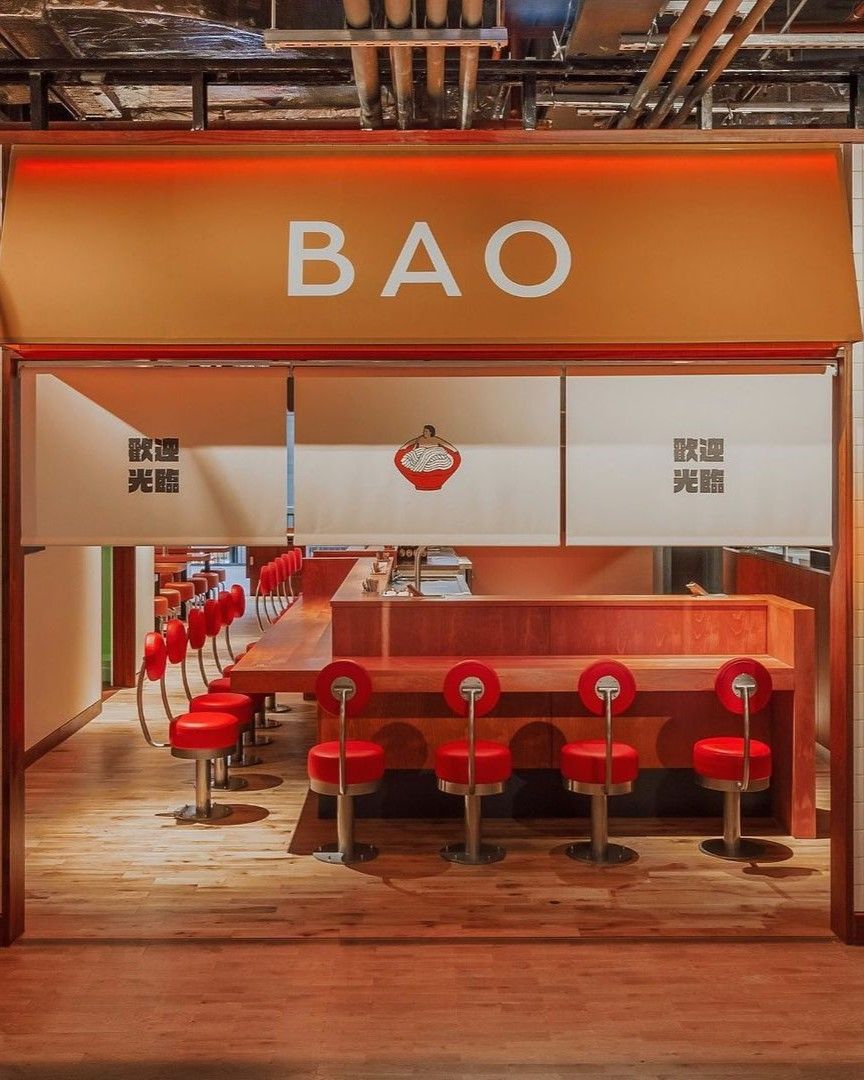

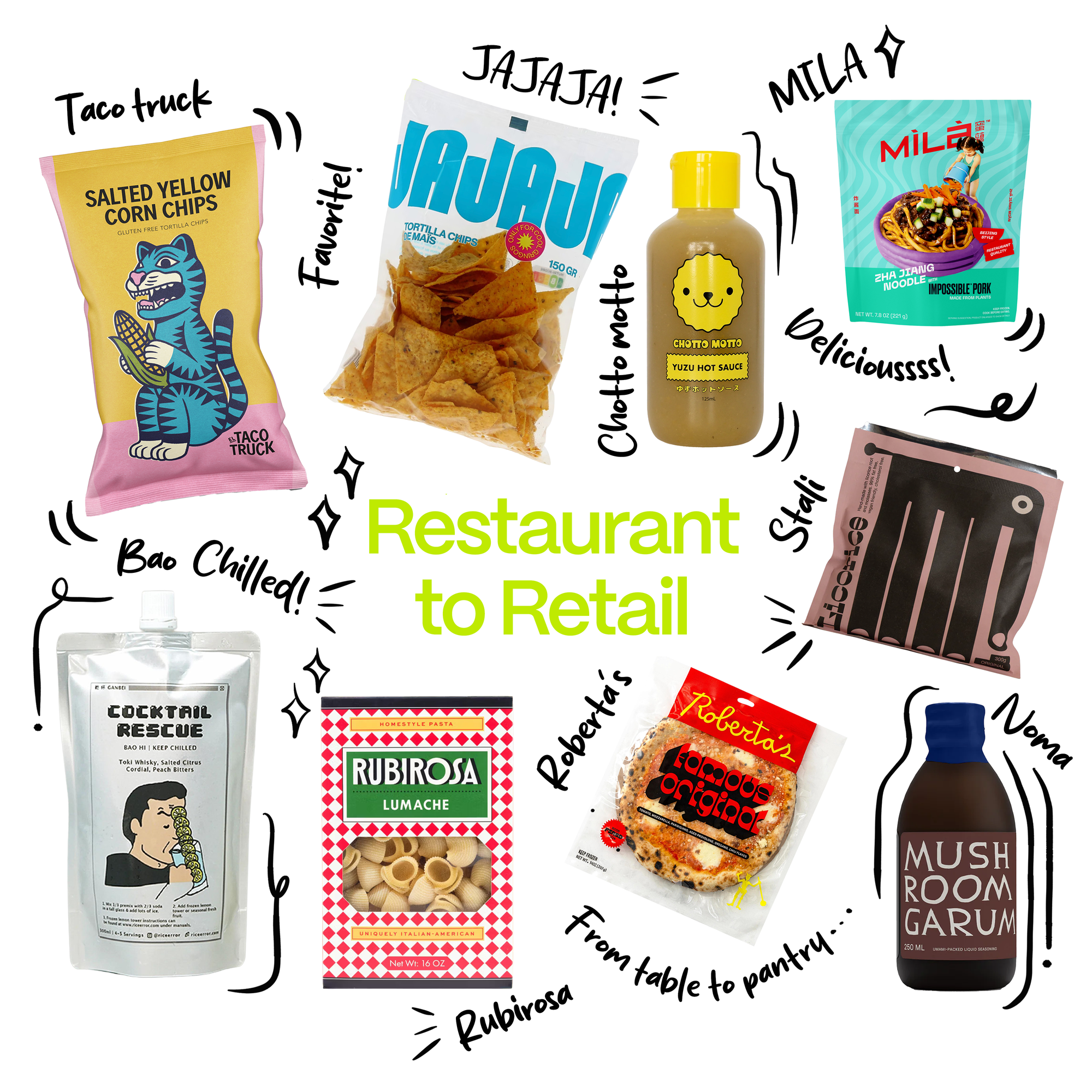
Hello for the first time noissuers, it rolls off the tongue just right, come on just go with it, for those who don’t know me, my name is Andrea Hernández and I run an international snack cult, where we worship sexy pantry items and sultry snacks, Snaxshot. Our platform is all about curation as a form of salvation at a time where there’s such an influx of products, leading at times to a paradox of choice, we love to parse through the noise for you, we like to say curating is a way to bring you where no algorithm has before, and a firm belief we strongly uphold.
I’m pleased to partner with noissue to bring you gems I’ve found along the way, that may serve you equal parts as inspiration and insight, tune in to this new bi-monthly column for the best curation around packaging at the intersection of food and beverage. We hope you enjoy this oracular spectacular new section as much as we do.
Roberta’s
The Bushwick native, Roberta’s, revolutionized the frozen pizza aisle, pioneering the see-thru look that would later inspire hundreds of restaurants and brands to do the same. Pizza box aesthetic reigned supreme for decades, with most taking advantage of being able to use enticing imagery, often times, not what actually matched the pizza within, and thus Roberta’s brought full transparency (pun intended) to this growing category, helping elevate the game of at-home pizza forever, as brands began to understand that in order to make this aesthetic work, they would have to raise the bar on making sure the actual product looks good.
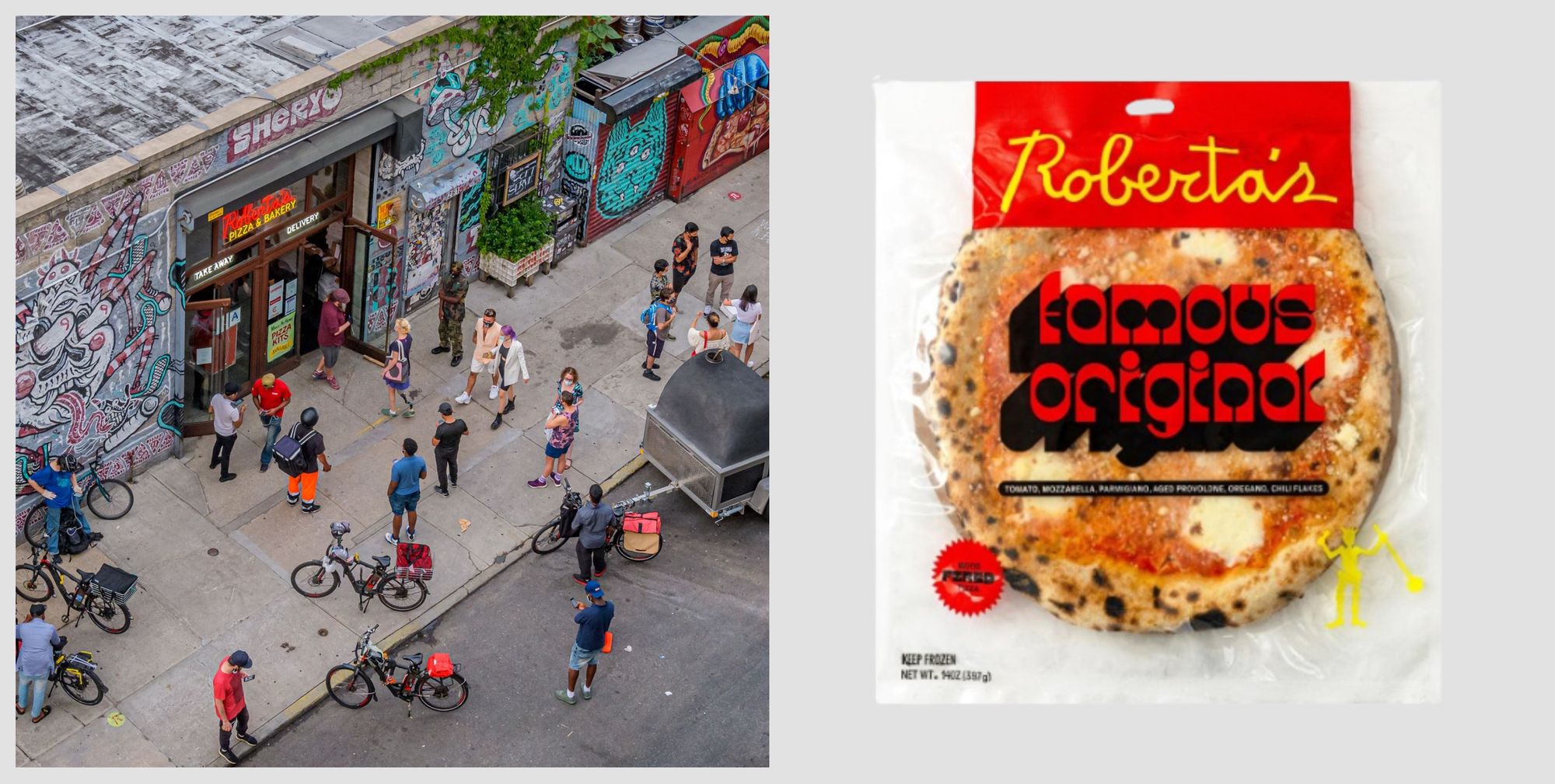
JAJAJA
Based in Paris, Jajaja is known for its bold neon sign and branding, proper of a modern taqueria in a city oozing sensuality and French cuisine. They have been able to translate this same boldness into their CPG line that is made up of sauces, tortillas, dips and chips, pairs of bold color palettes, with mostly transparent see-thru packaging from the bottles to the bags, allowing for the products’ freshness to shine through–quite literally.
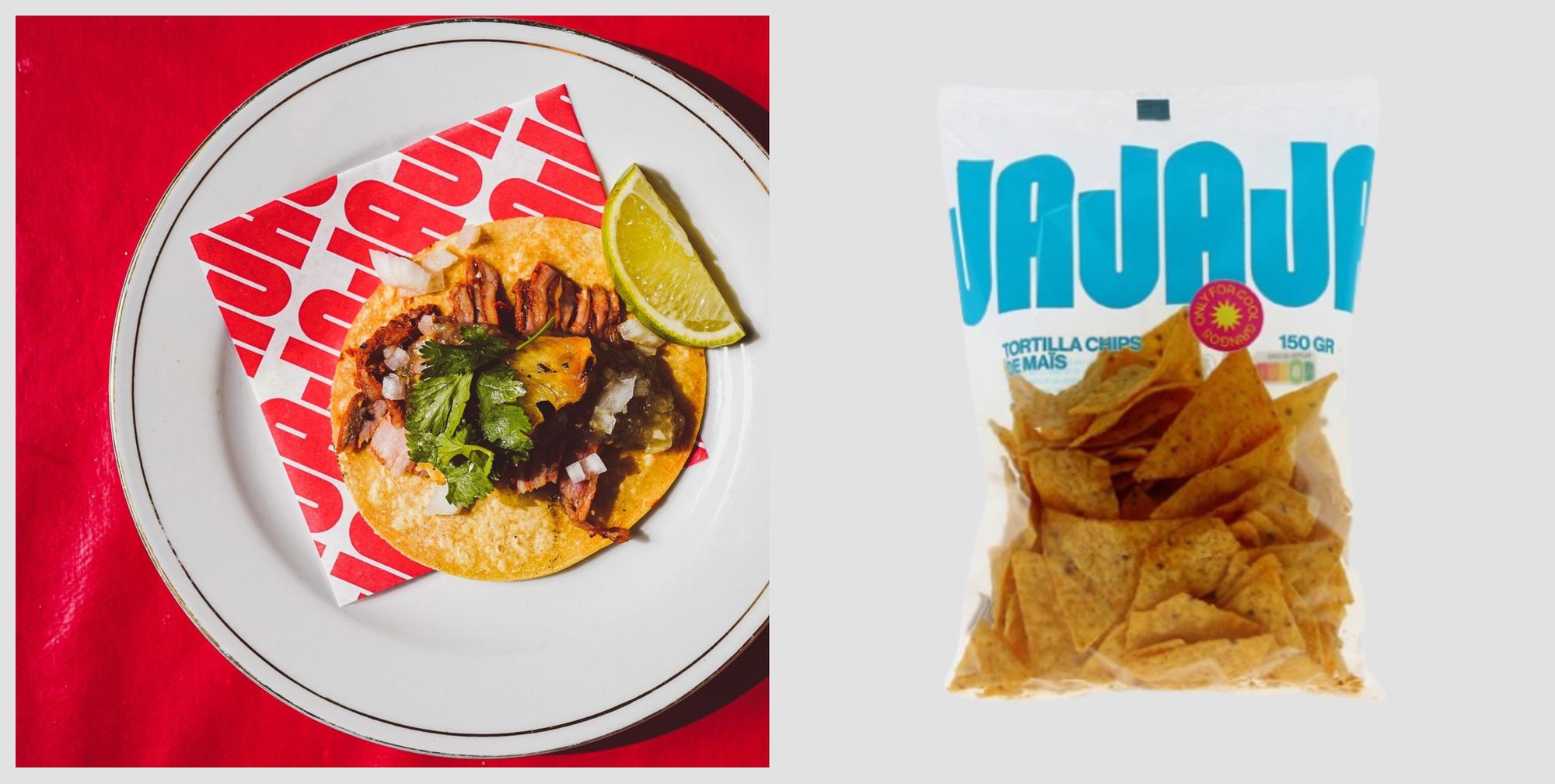
Al Brown & Co.
Based in Auckland, New Zealand, chef Al Brown's group of restaurants and brands are a great example of how to encapsulate the secret sauce of a restaurant. It was a natural progression to introduce condiments with a Deli, Bagelry, and Oyster Bar under his umbrella, and as expected these sauces do not miss their mark 🤌
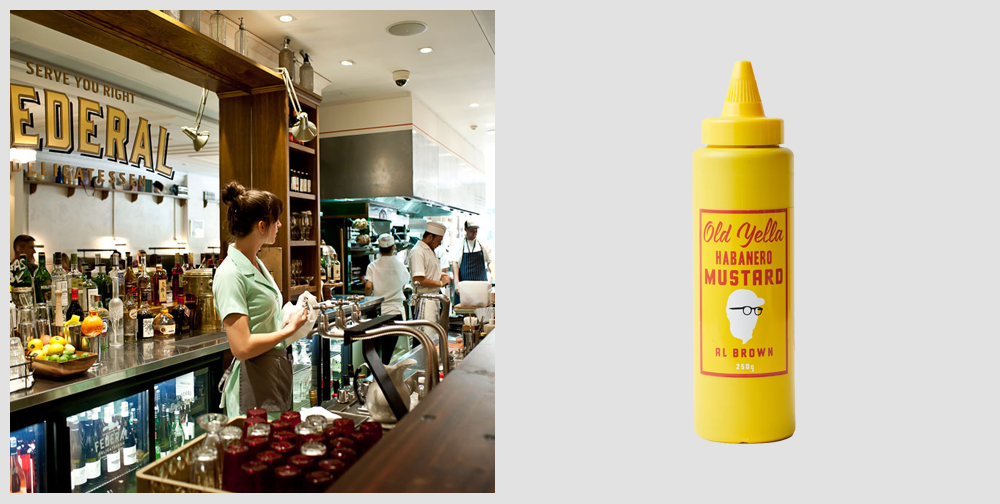
Bao
Based in London, Bao’s CPG line is unique in the sense that I’ve never seen a brand riff on 80s style 16-bit games before in a way that feels equal parts posh? In line with the post-pandemic trend of restaurants producing their own ready-to-drink (RTDs) lines, Bao developed beers, sake bottles as well as cocktail pouches, each that feature the vintage game style printed on an aluminum background. It’s equal parts grown-up and nostalgic–which feels like a juxtaposition of sorts?
But it does not end there–Bao created their own convni, a portmanteau of both Japanese conbini and western convenience stores, where beyond drinks, you can also purchase sauces, tableware and merch. Bao proves there is so much room to play around building out an entire brand universe beyond its restaurant doors, and it has paid out for them, you can find their products picked up across many indie grocers across Europe as well.
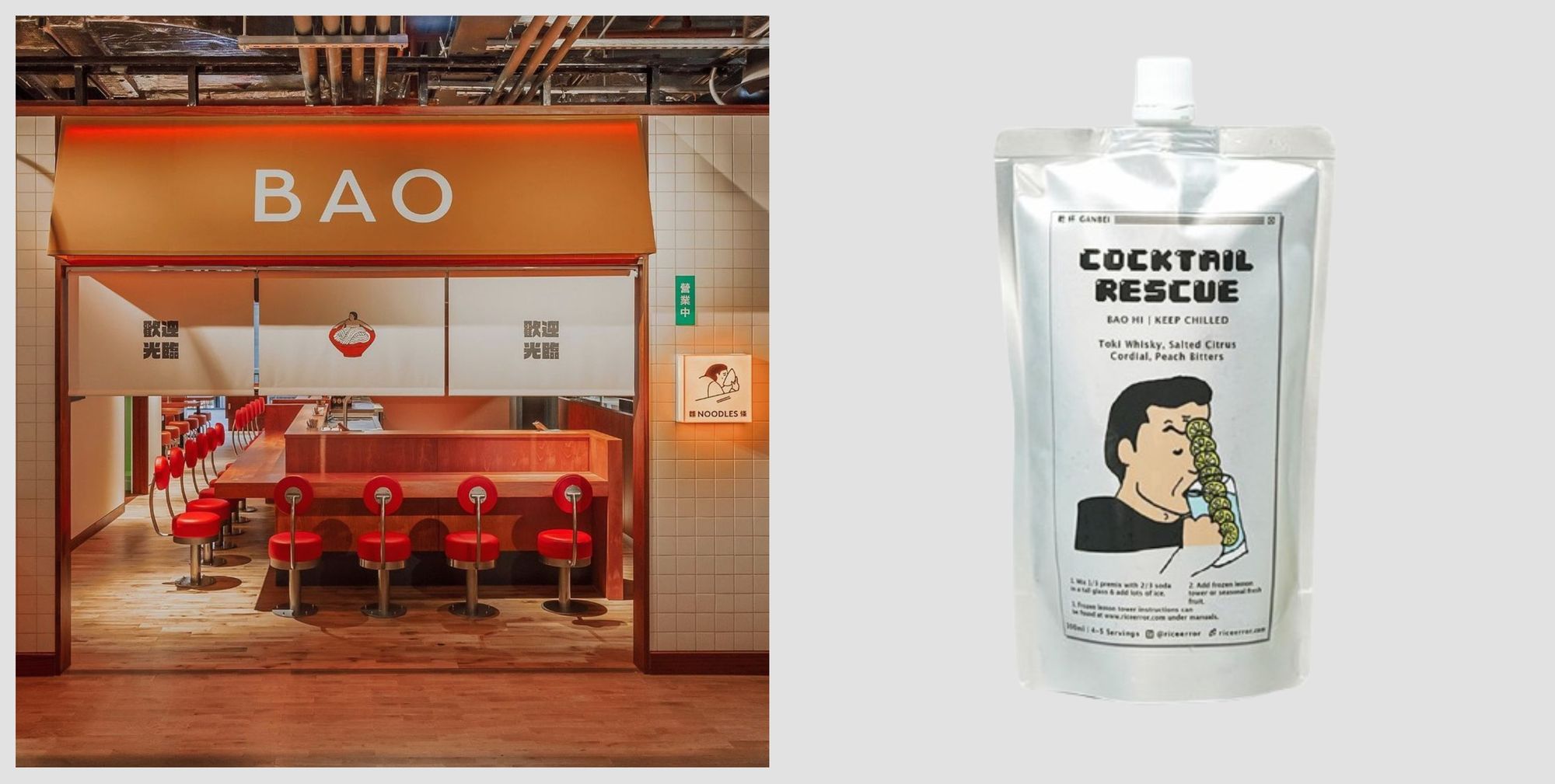
St. Ali
The iconic St. Ali café, which by the way has recently expanded into Bali, is one of my favorite examples of restaurant-to-retail, here’s a brand that is a combination of hypebeast luxe while not taking themselves too seriously. Beyond their canned lattes, teas, cold brews, granolas, and other pantry goods, my favorite has to be their line of confectionery snacks. Their molasses licorice packaging is so different, and definitely tugs at my inner child strings.
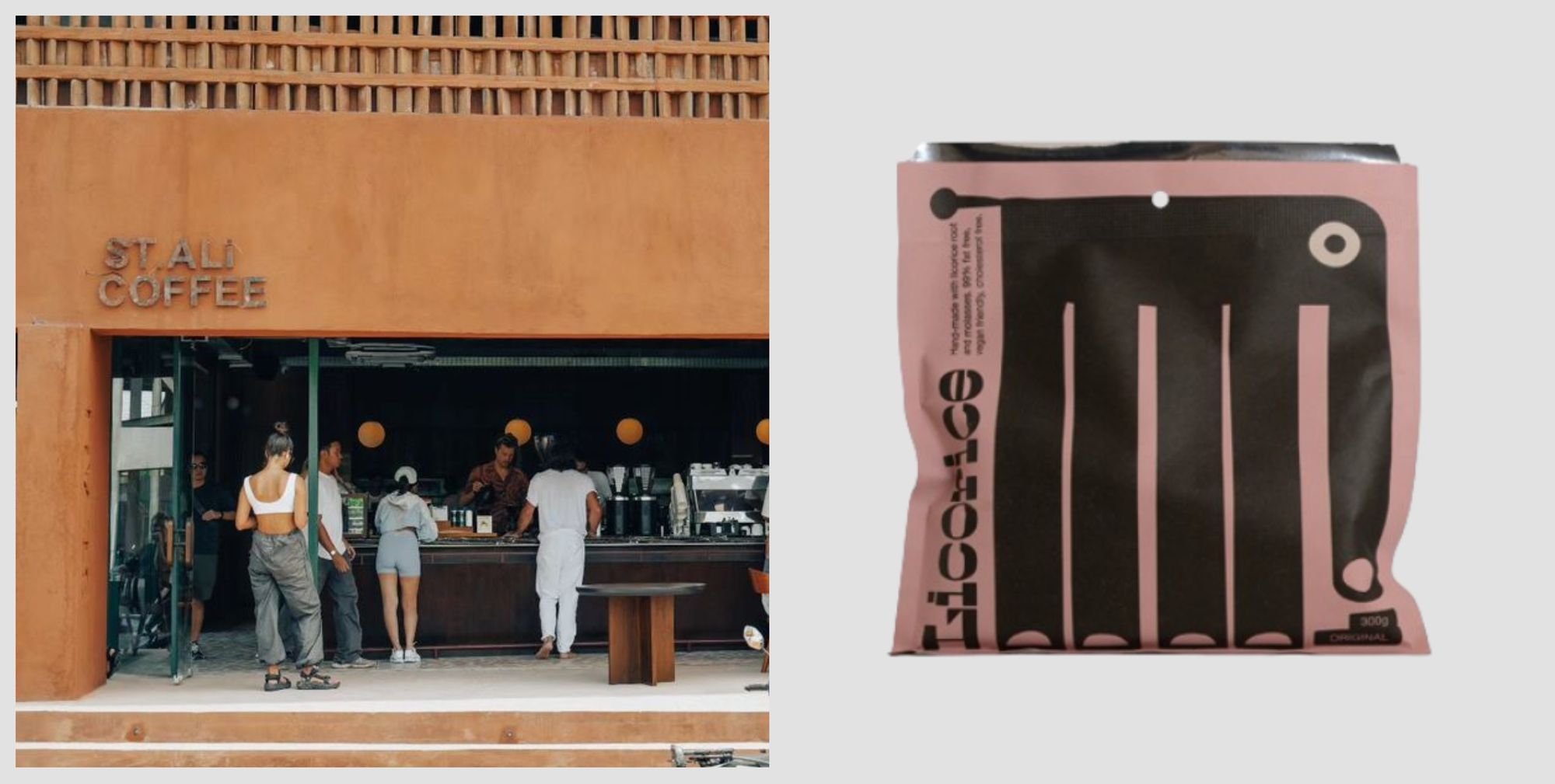
MìLà
Chinese American entrepreneurs, Caleb Wang and Jennifer Liao, opened a brick-and-mortar restaurant almost 6 years ago in Bellevue, Washington, focused on Chinese street food. Like any other restaurant in 2020, MìLà began to pivot into direct-to-consumer (DTC) much to their surprise, as their products, specially ones not usually prepared for takeout like their soup dumplings, began to take off. With newfound TikTok notoriety, and a growing demand, they began building out a frozen supply chain in order to be able to go DTC, by 2022 MìLà had sold over 13 million dumplings to over 100,000 customers, their revenue saw 5x increase and continues to grow at similar pace to this day.
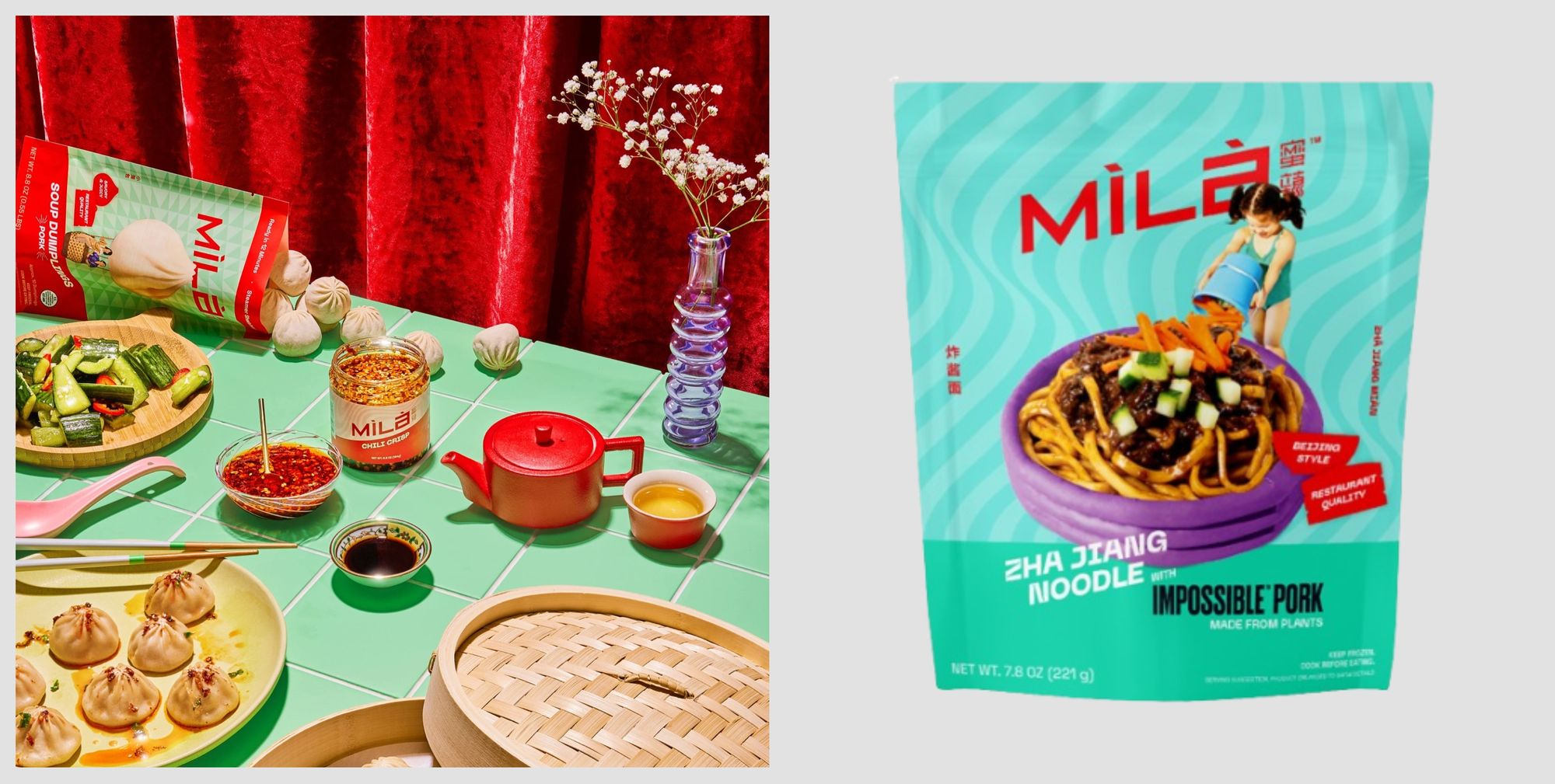
Noma
One of the most notorious Michelin star restaurants, Noma, based in Copenhagen, caused commotion when they announced they would be closing doors, and instead focusing on their growing CPG brand. From corn yuzu hot sauces to wild rose vinegar, the brand recently experienced a rebrand and went from pharmaceutical, to foraging meets apothecary, which seems to be in line with other CPG pantry brands like Acid League and Olea Pia.
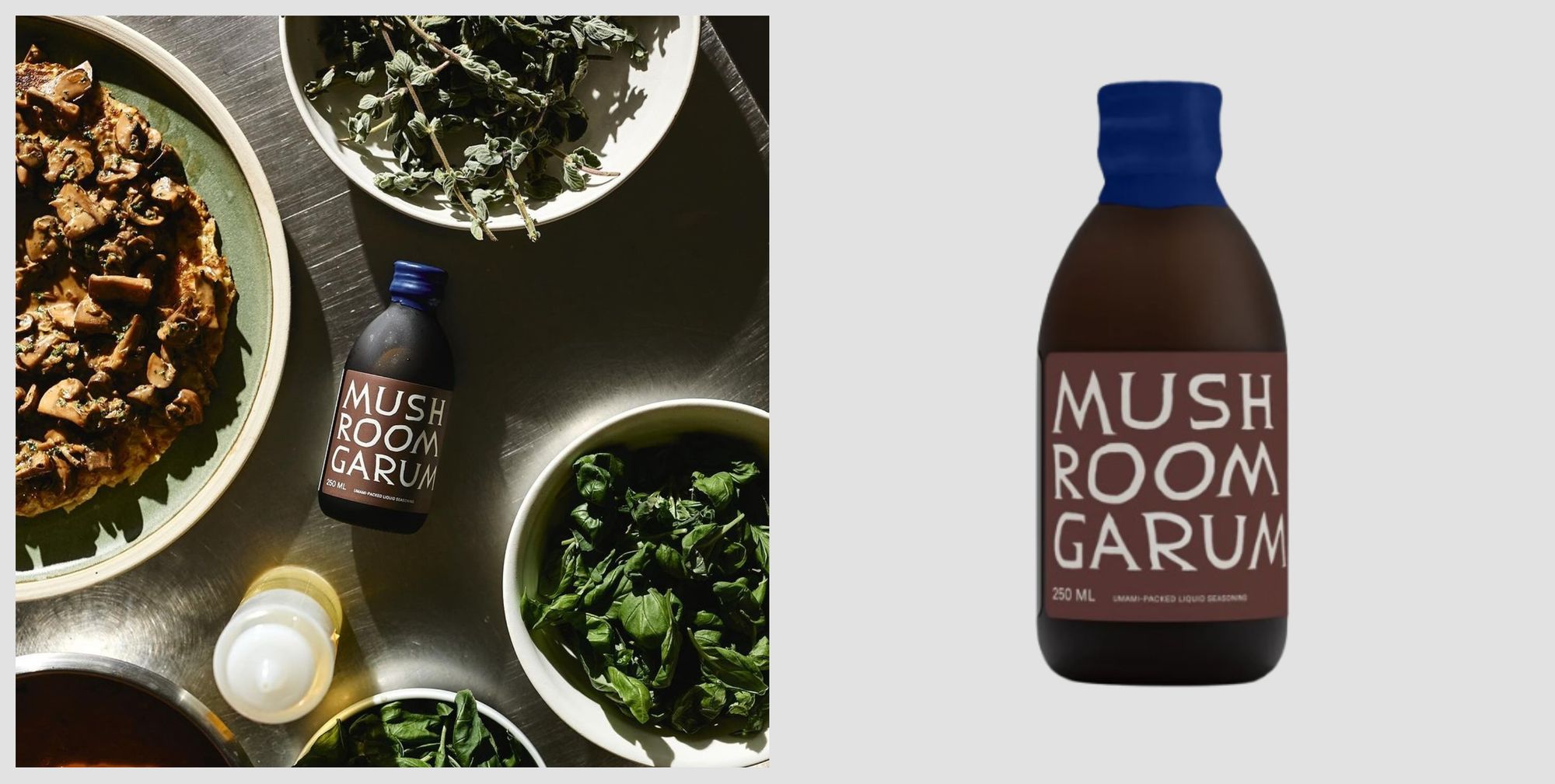
Taco Truck
Originally based in Stockholm, this taco truck’s success expanded into Finland, Denmark and Iceland. With its staple millennial pink branding that also screams generic private label in a way, the brand has seen a massive success expanding into major grocery stores across the EU itself. My favorite out of the lineup is obviously their chip bags that are absolutely a nod to Mexican heritage, jaguars were considered divine beings in Mesoamerican times. Love that they basically made pink their base and rolled with it, also their branded in-store sections are insane build outs resembling the original taco truck lore, they have definitely gone all out when it comes to retail.
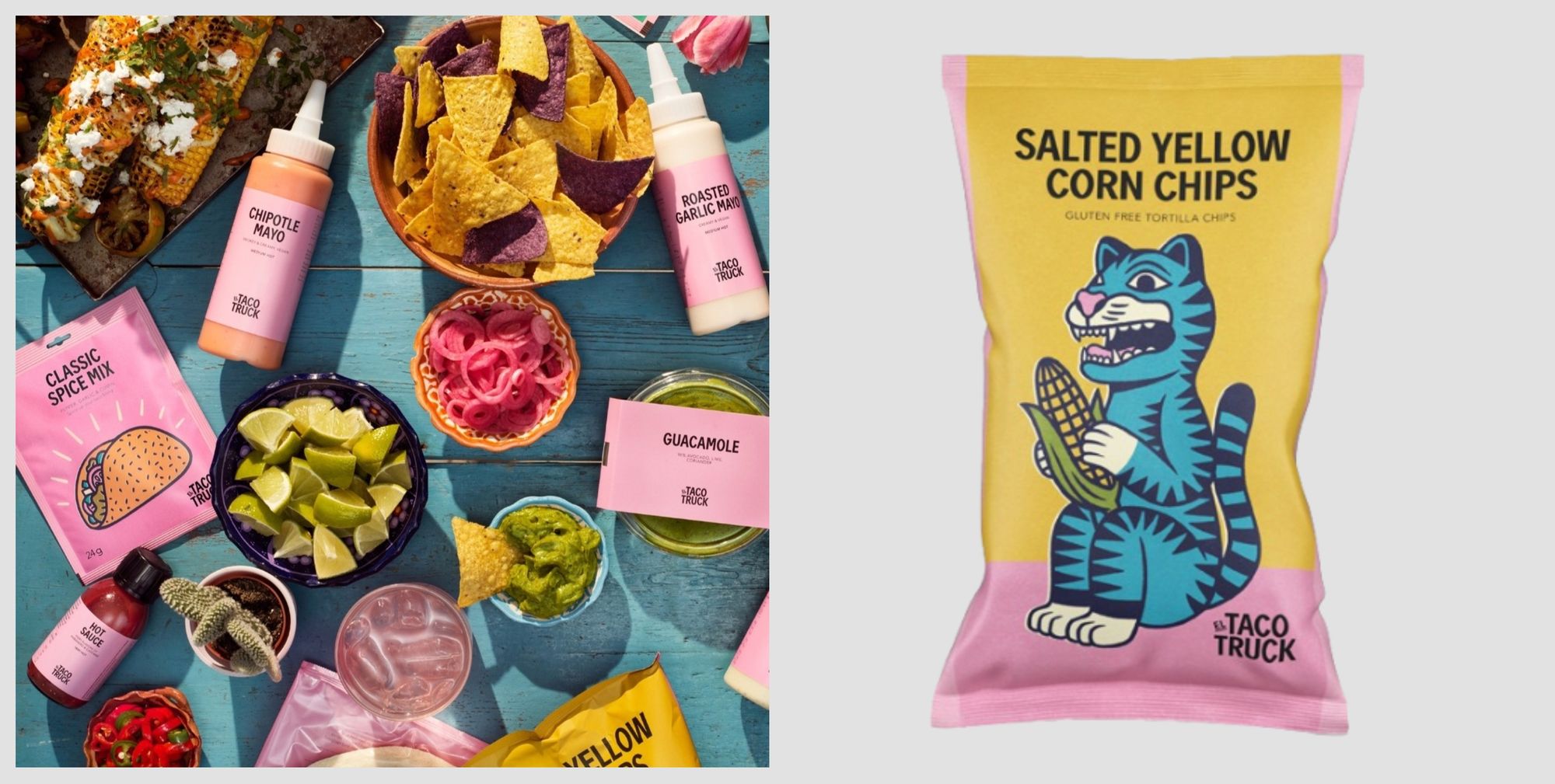
Chotto Motto
Saying this brand’s name out loud reminds me of the iconic “Hello Motto” jingle, just as an FYI that is exactly how I pronounce it. The Melbourne based restaurant is notoriously known for their nostalgic kawaii vibes, has been able to channel that same aesthetic and feeling into their growing CPG brand, most recently these cute yuzu hot sauces available in their own “Chotto Mart” as well as other indie grocers in Melbourne and Australia.
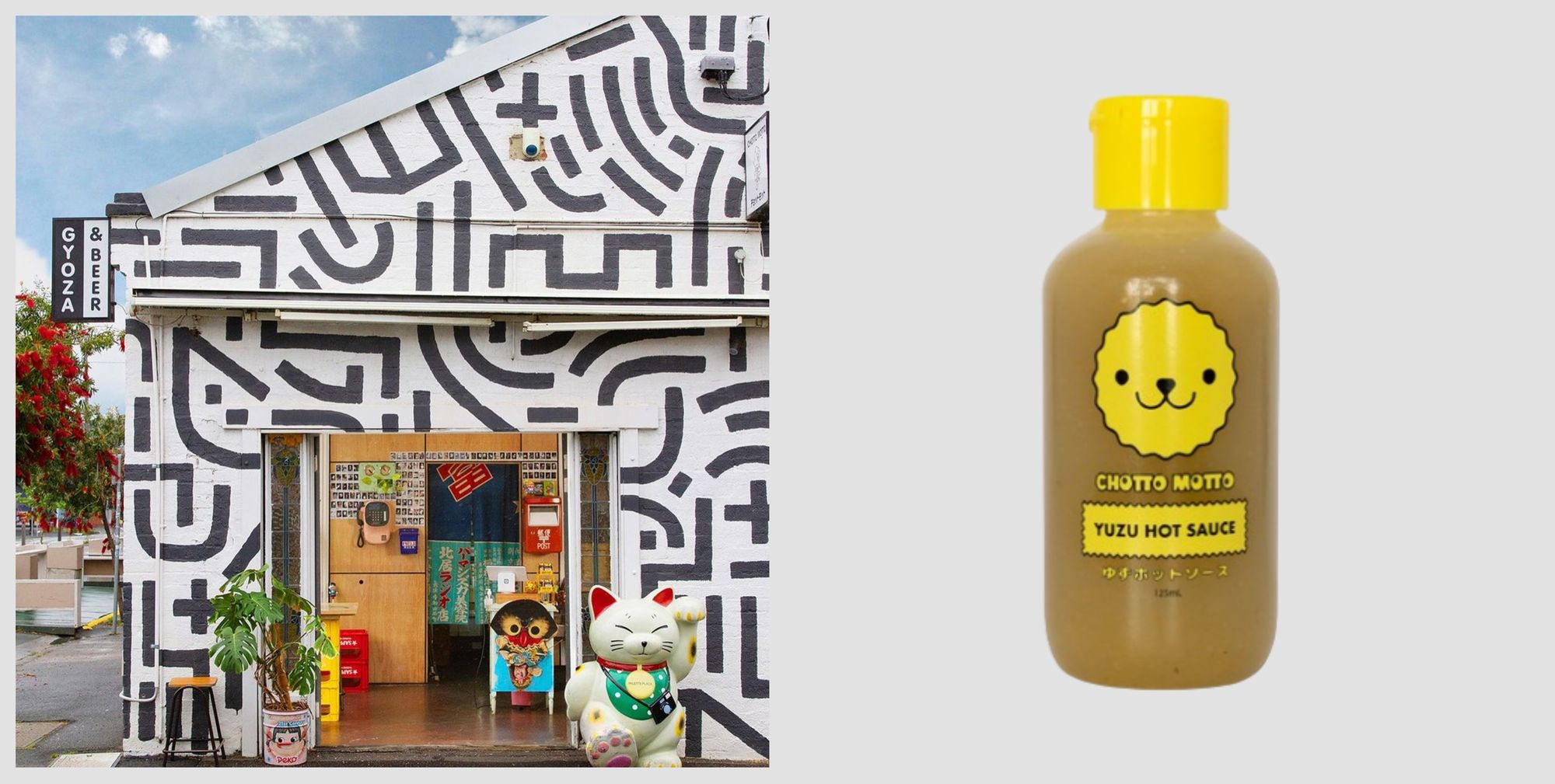
Rubirosa
Based in Manhattan, Rubirosa started as a cultish pizza and pasta joint in the youth-centric, lower east side neighborhood of Nolita, leveraging its popularity the brand recently dove into CPG, featuring oils, sauces as well as pastas. Their brand identity is a mix of old school italian white and red checkered tablecloth and modern typography. It has become a pantry staple in every trendy grocer across the US, another example of how these hypebeast style restaurants, think Carbone as another example, are turning their CPG lines into a form of external signaling, similar to what luxury goods do for Millennials and GenZ equally.
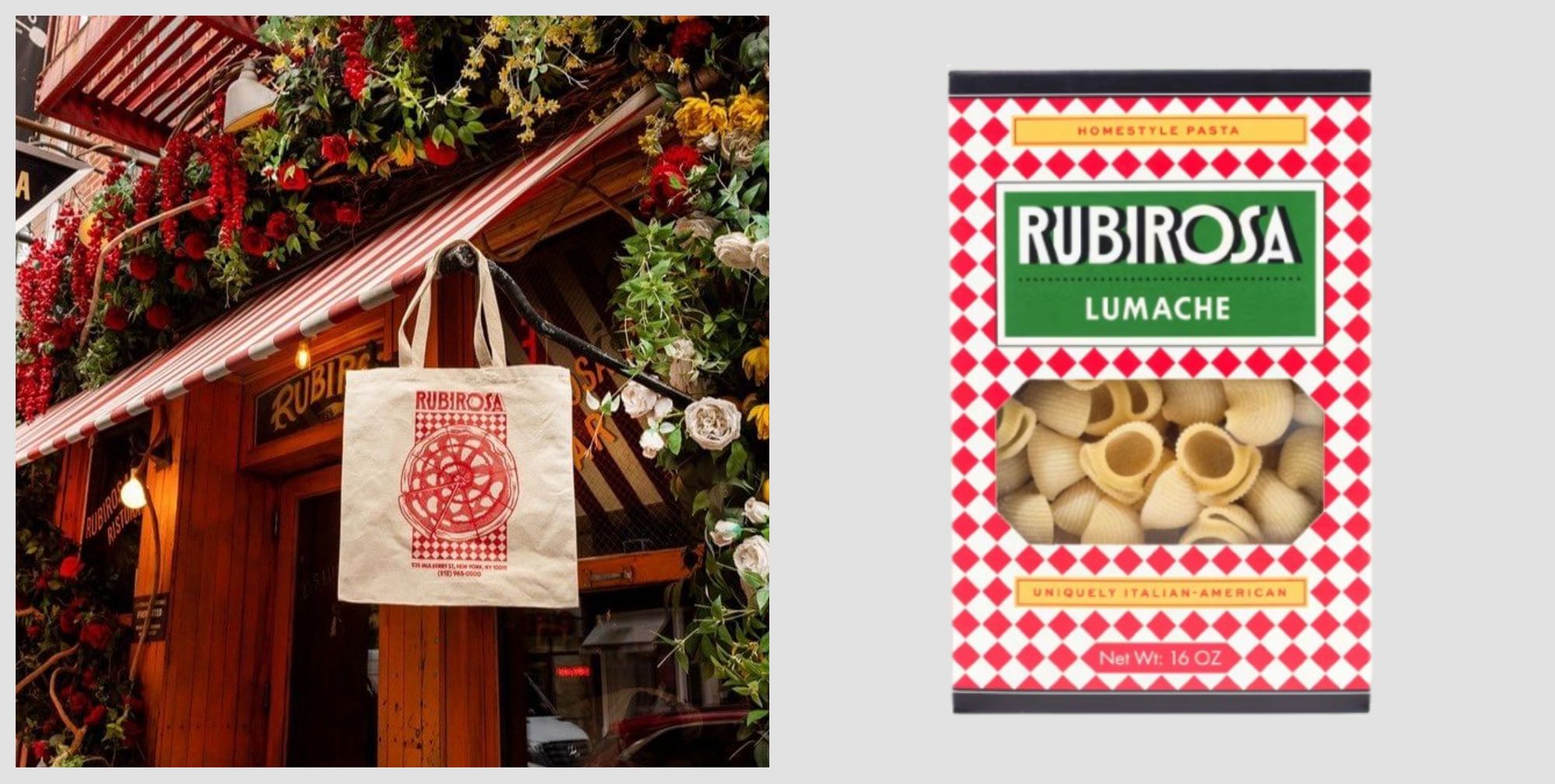
Fun Fact
The most successful pivot from restaurant to retail may just be Chef Boyardee, though the whimsical and eccentric character may appear to have been conceived in some advertising boardroom, Ettore Boiardi was a real Italian-immigrant chef, who went from preparing meals at the White House to opening the popular restaurant, Il Giardino d'Italia, that was so coveted, clients would ask for jars of their sauces to take home, inspiring their pivot to CPG and retail.
Ettore believed the pronunciation Boy-ar-dee would be easier to use as he would be marketing his products to Americans who may not know how to correctly enunciate his last name, Boiardi, a decision that would secure his brand popularity almost 100 years later.
Key Takeaways
- R2R—isn’t new, it's evolving and DTC makes it easy to start, ex. MiLà omnichannel is what has proven successful to withstand test of time
- Start local—find taste tester fit, leverage community and those familiar with your brand and grow from there, ex. Roberta’s
- CPG extensions as competitive advantage for restaurants where retail footprint isn’t, ex. Bao From table to pantry —restaurant brands have the potential to become legacy that spans as long as a century, ex. Chef Boyardee
About the writer
A bi-monthly snack-sized unpacking of the food and beverage industry by noissue. Featuring the newest and coolest in branding and packaging around the world, curated by Andrea Hernández, with over a decade of experience working in PR, branding and marketing strategy, now head of the CPG cultish-newsletter, Snaxshot.
